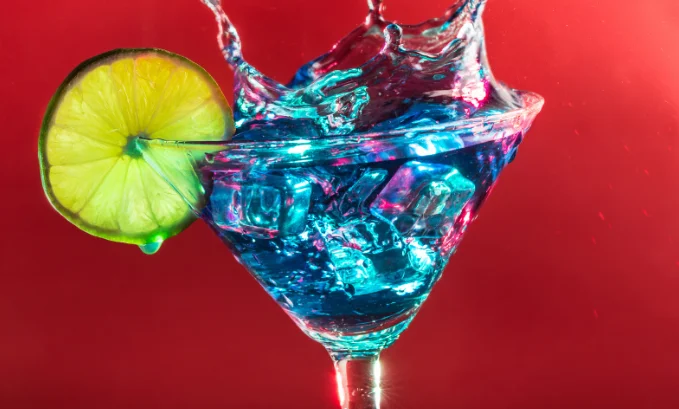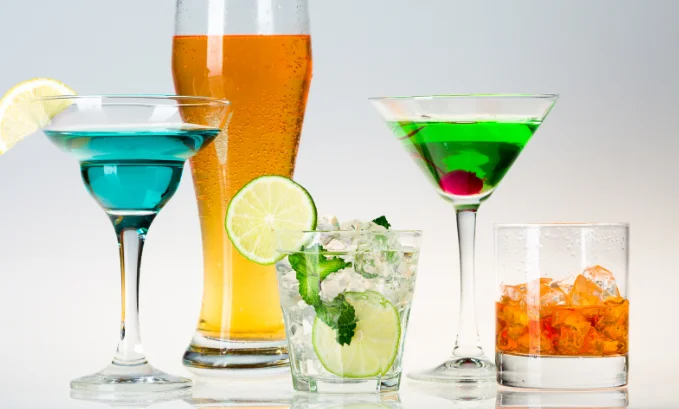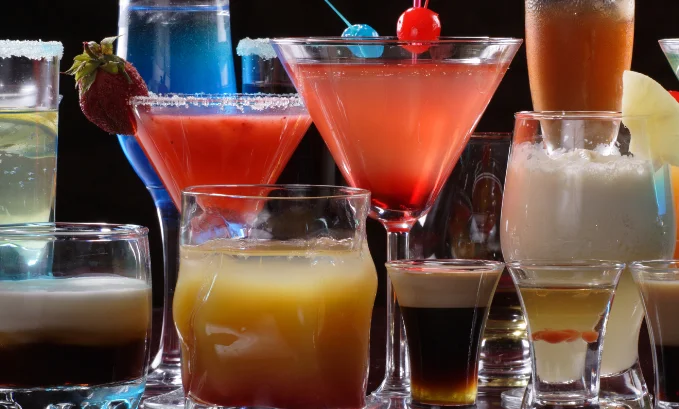
The following blog post is for entertainment and informational purposes only. It is not intended to provide medical advice or diagnosis. Please consult your doctor before making any health-related decisions.
Hormone GLP-1 regulates glucose metabolism, insulin output, and satiety. Prescribed for weight loss management as well as treatment of type 2 diabetes are the commonly known GLP 1 receptor agonists. They are presented by Semaglutide and Tirzepatide. Recently these drugs have gained interest due to the GLP1 alcohol effect. Let’s explore interconnection of the glp1 and alcohol consumption and the benefit of using these medicines.
What Is GLP1?
This hormone is generated within the intestines in response to food intake. It serves different purposes. This hormone boosts insulin release and decreases blood sugar levels. It also delays the emptying of the gastric for better satiety sensations and curbs hunger pangs.
New studies indicate glp1 alcohol intake effects.
Link Between GLP1 and Alcohol Use

Reduced Cravings for Alcohol
Research demonstrates the ability of GLP1 receptor agonists to decrease cravings for addictive substances. Although the precise mechanism is currently under scrutiny, one speculation outlines that GLP1 alcohol impact collaborates with the reward system in the brain closely associated with addiction and urges. By suppressing this response towards alcohol intake at a neurological level, administering these agonists as medicine can curb its consumption inclination significantly.
Research conducted on both animals and humans has indicated that GLP1 receptor agonists have the capability to decrease cravings for alcohol. In animal models, administering these drugs resulted in a noteworthy decline in alcohol consumption. Furthermore, preliminary human clinical trials suggest that medicines containing GLP1 can diminish the urge to drink as well as lower actual intake levels of alcoholic beverages.
The potential solution for treating alcohol use disorders (AUD) lies in the ability of GLP1 receptor agonists to suppress cravings. This novel approach can effectively address both physiological and psychological aspects of alcohol addiction. This makes it a beneficial glp1 alcohol addiction treatment option.
In essence, these medicines can manage addiction because they decrease alcohol cravings through their impact on the brain’s reward system. This discovery suggests that GLP1 medicines possess wider capabilities than initially thought and further research is required to explore this effect.
Impact on the Dopamine System
These medicines are renowned for their ability to manage sugar amounts in the blood and foster weight loss. However, recent discoveries have illustrated their influence on the dopamine system. Due to this connection with reward and pleasure, GLP1 alcohol addiction treatments can decrease an individual’s urge for consumables.
1. Dopamine and Alcohol Addiction
The brain’s reward system is significantly influenced by this hormone. Pleasurable activities of eating or alcohol drinking result in the release of this substance. This effect strengthens the alcohol mediated behaviors and generates an urge to do them again. This cycle is driven by dopamine and provides underlying addictive tendencies.
Alcohol consumption elicits a surge in dopamine release. This results in the pleasurable sensations from drinking. So, the brain links alcohol with this gratifying rush of dopamine. It instigates both cravings and ingrained patterns of behavior associated with habitual use.
2. How GLP1 Receptor Agonists Affect Dopamine
The alcohol reward pathway can be altered by GLP1 receptor agonists as they have an impact on the signaling of dopamine. According to research, these medicines have a connection with neurons that produce dopamine in the brain and when activated decrease its release upon exposure to stimuli such as alcohol. Thus, the GLP1 alcohol-limiting drugs act by decreasing the amount of released dopamine which lowers one’s sense of drinking pleasure ultimately reducing motivation for it making it more accessible for people who want to limit their alcohol consumption.
3. Research Findings
Studies, particularly those conducted on animals, indicate that GLP1 alcohol effects can curb its intake by dampening the dopamine response. In mice and rats specifically, these drugs have been observed to diminish their desire for alcohol as well as decrease overall consumption of this substance. This impact is attributed to how these medicines interact with reward-related pathways in the brain through their influence over dopamine communication channels.

4. Broader Implications for GLP1 Alcohol Addiction Treatment
These medicines possess the potential to modify dopamine activity, creating fresh avenues for addiction treatment beyond alcohol and extending into other substances. Placing emphasis on reward and pleasure neurobiological mechanisms, GLP1 medicines offer an innovative technique for addressing addictive behaviors that depart from conventional practices focused solely on behavioral interventions.
So, GLP1 receptor agonists have an impact on the dopamine system by decreasing the release of dopamine when exposed to addictive stimuli like alcohol. This results in a reduction in enjoyment and gratification associated with alcohol consumption which reduces cravings and helps limit drinking habits, possibly leading to new addiction therapies.
Appetite Suppression and Alcohol
GLP1 receptor agonists are renowned for their aptitude to curb hunger and encourage weight reduction. Surprisingly, this outcome could also foster GLP1 alcohol moderation. By diminishing general appetite and yearnings, these drugs may trigger lower levels of consuming alcoholic beverages. People might encounter less inclination to indulge in drinking activities, particularly during social occasions where food is served with alcohol.
GLP1 and Alcohol Use Disorders (AUD)
Researchers are investigating the possibility of using GLP1 alcohol use disorder treatment. They are based on their potential to curb cravings and consumption. AUD is a condition that entails uncontrollable intake of alcohol despite negative outcomes, with current treatment options offering only limited effectiveness. The use of GLP1 alcohol use disorder medicines can present an innovative approach because it targets the brain’s reward system to decrease the alcohol dependence on GLP1.
Although clinical trials remain preliminary, the potential use of GLP1 receptor agonists in treating AUD shows encouraging progress. Should their efficacy be confirmed, these drugs may present a valuable resource for those battling alcohol addiction.

Potential Limitations and Considerations
Despite the promising effects of GLP1 on alcohol consumption, various factors still need to be taken into account.
Individual Variability
Although GLP1 alcohol use exhibits the potential to decrease its consumption by suppressing cravings and impacting the brain’s reward mechanism, their efficacy may differ considerably among people. Various factors can influence this individual variability which ultimately dictates how effectively these drugs reduce a person’s intake of alcohol.
1. Genetic Factors
The genetic makeup of an individual is a significant determinant of the variations seen in response to GLP1 medicines. These differences modify how one’s body processes and reacts to these drugs, as some people can have deviations in their dopamine pathways or GLP1 receptors, thereby influencing the medicine’s effectiveness in controlling cravings and reward mechanisms. Depending on their genetic profile, certain people might benefit more from reduced alcohol cravings while others may not experience any noticeable effect at all.
2. Behavioral and Psychological Factors
The impact of GLP1 receptor agonists on an individual’s alcohol consumption may be influenced by their past psychological and behavioral experiences with it. The neurobiological adaptations to prolonged heavy drinking alcohol on GLP1 in people can differ from those who are moderate or occasional drinkers, thereby creating a greater obstacle for GLP1 drugs to affect any changes in their behavior related to alcohol use.
Additionally, the efficacy of GLP1 medicines can be influenced by psychological aspects such as anxiety, depression, or stress that are often concomitant with alcohol consumption. People who utilize drinking to cope with emotional regulation or alleviate stress may not observe similar curbing effects on cravings compared to those consuming alcohol for habitual or social reasons.
3. Lifestyle and Concurrent Health Conditions
The GLP1 alcohol consumption effect can be influenced by lifestyle choices and co-existing health conditions, like metabolic syndrome, obesity, or diabetes. When treating type 2 diabetes and weight loss promotion with these drugs, people who already feel an improvement in their overall health might respond better to the medication’s impact on alcohol cravings. However, those with untreated or poorly managed ailments may not see significant advantages from its use.
4. Medication Dosage and Duration of Use
The GLP1 alcohol use impact is influenced by the dosage and duration of medicine intake. While certain people might necessitate higher doses to yield tangible results, others may achieve desired outcomes with lower dosages. Moreover, prolonged usage can allow for bodily and cerebral adaptation resulting in greater efficacy to curbing excessive alcohol consumption over time.
Not all people experience the same impact of these compounds on their alcohol consumption. Genetics, lifestyle, psychological and behavioral patterns, and medicine dosing determine the efficiency of the medicines in mitigating alcohol cravings. Although some may witness a notable decline in habits of drinking alcohol on GLP1 thanks to this treatment plan, others might not observe any significant changes. Hence personalized approaches towards treatment should be prioritized since different people respond differently to it.
Long-Term Effects
Further investigation is necessary to comprehend the enduring consequences of GLP1 alcohol consumption results. The majority of research has concentrated on immediate results, leaving uncertainty as to whether these medicines can sustain decreased patterns of drinking alcohol on GLP1 in the long run.
Interactions with Alcohol

Although GLP1 medications can potentially lower alcohol intake, it is crucial to acknowledge the possible ramifications of mixing them with alcoholic beverages. Imbibing while taking GLP1 receptor agonists may heighten adverse effects like queasiness, lightheadedness, or hypoglycemia.
New findings on the relationship between GLP1 and alcohol consumption are shedding light on how these drugs could affect drinking habits. Through curbing urges and regulating the reward center of the brain, these drugs might potentially decrease alcohol consumption, opening up a fresh approach to addressing disorders related to alcoholic beverage use.
Although further research is required to comprehend the association between alcohol and GLP1 comprehensively, initial indications appear encouraging. For people who are using these drugs as a means for weight reduction or diabetes management, this additional benefit may aid them in making healthier selections regarding their lifestyle and limiting their consumption of alcohol. As investigations move forward, it is reasonable to infer that GLP1 could become an indispensable asset in addressing both metabolic health issues and addiction concerns.






